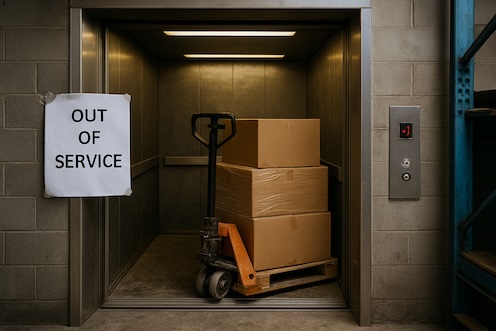During the peak transportation period of a certain complex, the freight elevator suddenly stopped between the third and fourth floors, trapping two workers and leaving dozens of boxes of perishable goods stranded. By the time the maintenance personnel arrived, it had been over four hours and the direct economic losses exceeded tens of thousands of yuan. On the surface, it may seem like an occasional 'accident', but in reality, the root cause lies in negligence during the procurement phase.

The hidden danger of price priority
In order to compress the budget, the developer chose low-priced models and reduced maintenance terms. As a result, the durability of key components is insufficient, safety redundancy is reduced, and long-term high load operation almost inevitably leads to failures. In fact, maintenance and component replacement costs often exceed 40% of the total cost throughout the entire lifecycle of an elevator. If the after-sales capability and parts supply are neglected in the early stage, the seemingly saved funds will soon be swallowed up by downtime losses and high maintenance costs.
Neglected practical needs
A survey shows that about 60% of small and medium-sized commercial projects have not conducted reasonable assessments of their carrying capacity and frequency of use, and freight elevators have been in an overloaded state for a long time, with wear and tear and risks constantly amplified. More seriously, some suppliers intentionally downplay restrictions and promote the slogan of "applicable to all scenarios", while procurement parties lacking professional judgment often believe their words easily.
Elevators are not a single device
It was not until the accident that the management realized that elevator procurement was never a single equipment purchase, but a systematic project involving:
·Brand reputation and after-sales response speed
·Stability of the accessory supply chain
·Whether it meets the real needs of load-bearing and durability
·Constraints and guarantees on maintenance in the contract
If these links are ignored, mechanical failures will quickly evolve into operational losses, and even lead to conflicts with merchants.
The chain reaction of goodwill
Although the accident did not cause any casualties, the reputation of the shopping mall has been significantly damaged during the compensation and coordination process. In commercial projects, the stable operation of elevators is not only related to convenience, but also to reputation and trust. Once a problem arises, the subsequent reactions are often much more severe than expected.
A warning to the industry
The industry generally believes that elevators are not "disposable consumer goods", but rather a comprehensive solution related to long-term operation. If procurement only focuses on price, but ignores the full lifecycle cost, after-sales support, and real needs, the so-called 'unexpected shutdown' will eventually evolve into an inevitable paralysis.
